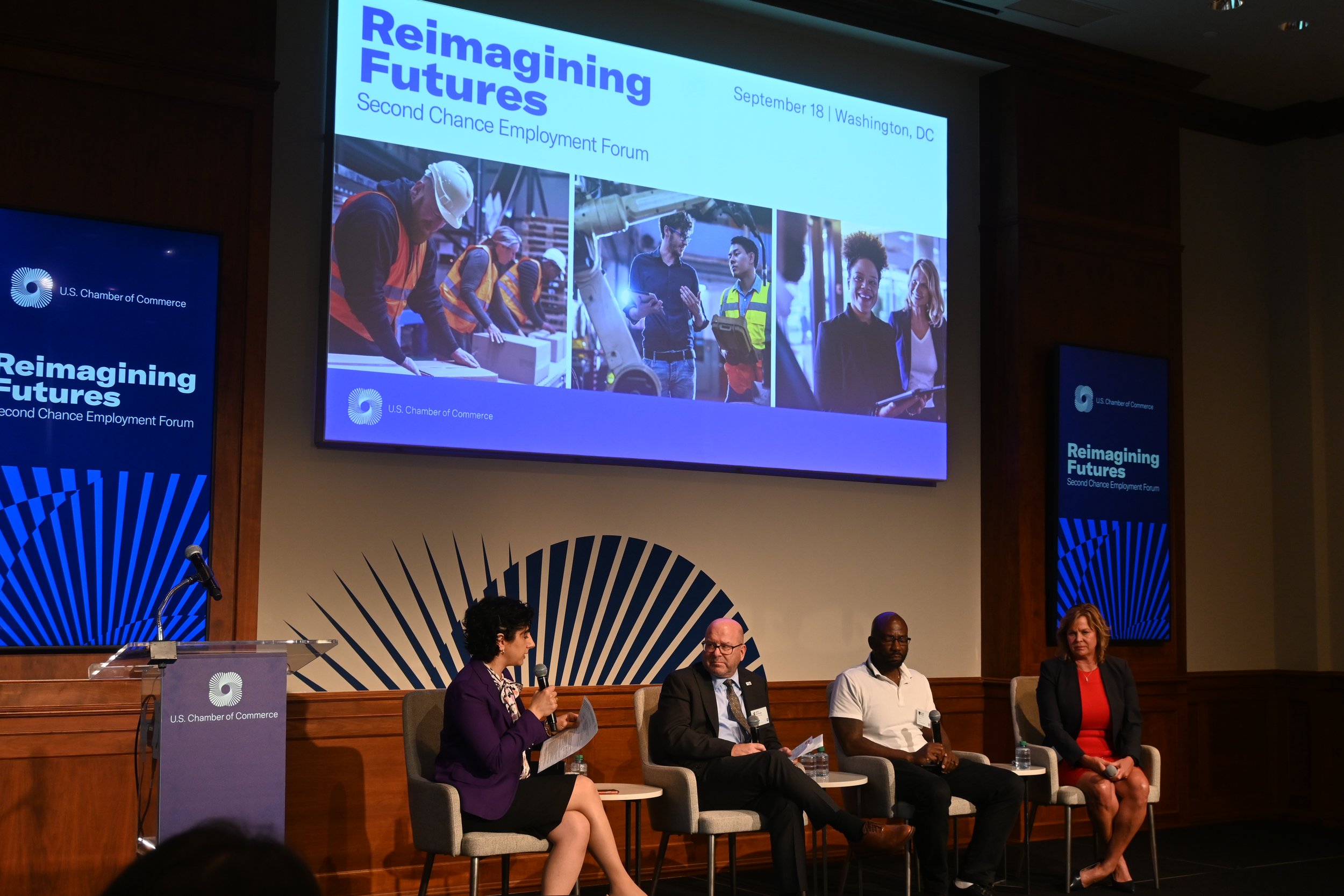6 Ways to Celebrate Second Chance Month with RBIJ
April is Second Chance Month in the United States, a time to spotlight the barriers faced by people with criminal records and the commonsense solutions being implemented — often by the business community — that can help them thrive. One of these solutions is Second Chance Hiring: the practice of intentionally recruiting and hiring individuals with criminal records.
Second Chance Hiring isn’t just the right thing to do — it’s a smart business move. In the face of labor shortages and high employee turnover rates, this talent solution has been growing in popularity for decades because it helps businesses tap into overlooked talent pools, elevate their workforce, and improve the safety and prosperity of their communities.
Yet many employers still don’t know where to start. If you’re a business considering launching or scaling your Second Chance Hiring efforts this Second Chance Month, here are some valuable resources, events, and opportunities to help you get started:
Download RBIJ’s Second Chance Hiring Roadmap here.
1. Get Your Free Second Chance Hiring Roadmap
Businesses new to Second Chance Hiring may find the process intimidating. Tapping into the justice-impacted talent pool requires thoughtful consideration to ensure that barriers to entry are eliminated and employees are supported in their new roles. RBIJ is committed to helping more businesses navigate this process, which is why we offer resources like our Second Chance Hiring Roadmap.
This free guide is an introduction to Second Chance Hiring that includes: best practices, how to find trusted community partners, and case studies from experienced second chance employers. Download the Roadmap here.
RBIJ’s Senior Manager for Impact & Belonging, Camieka Woodhouse-Willis, at the Georgia Chamber’s Future of Talent event in 2024.
2. Request Tailored Support from RBIJ’s Team
Second Chance Hiring is not “one-size-fits-all.” That’s why, when updating your hiring and recruitment processes to welcome workers with criminal records, getting personalized advice that fits your company’s needs is critical. Our RBIJ team are experts in Second Chance Hiring and can help your company audit your existing policies and provide tailored next steps.
We work with companies of all sizes — from major corporations to small mom-and-pop shops — who want to integrate Second Chance Hiring into their operations. Submit an inquiry to connect with our Inclusive Hiring team!
3. Join the Workforce & Justice Alliance
While Second Chance Hiring is a growing trend, there are many businesses who have been employing justice-impacted talent for years. We’re grateful to have experienced second-chance employers as a part of RBIJ’s Workforce and Justice Alliance (WJA).
The WJA is a community of over 60 businesses dedicated to inclusive hiring and advancing criminal justice reform. By joining, you gain access to like-minded businesses engaged in these efforts, exclusive resources, and more.
RBIJ CEO Maha Jweied (left) moderates a panel at the U.S. Chamber of Commerce’s Second Chance Employment Forum in 2024.
4. Attend a Second Chance Month Event
Second Chance Month events are a great way to learn more about different aspects of Second Chance Hiring and connect with fellow businesses or community-based organizations. View our events calendar to find virtual and in-person events that RBIJ is supporting this April.
5. Advocate for Workforce-Boosting Justice Reform Policies
Expanding opportunities for people with criminal records requires more than just changing corporate policies — it also demands smart public policy reforms. Formerly incarcerated individuals face thousands of systemic barriers to a successful reentry, including from difficulty obtaining state-issued ID cards, to limited access to occupational licenses.
Businesses have a powerful voice in advocating for policies that remove these obstacles. RBIJ is working to advance key reforms like automatic record sealing (Clean Slate), access to IDs upon reentry, eliminating driver’s license suspensions due to unpaid fines and fees, and occupational licensing reform. Want to get involved? Connect with our Policy & Advocacy team today.
6. Share Second Chance Stories
Businesses have an important role in shifting public perceptions around hiring justice-impacted talent.
By sharing success stories of Second Chance Hiring programs, companies demonstrate that fair and inclusive workplaces are good for businesses and their communities. RBIJ will share many inspiring second-chance stories this month on social media. We encourage you to like, share, and comment on any Second Chance Month posts you see — and consider sharing some of your own!


